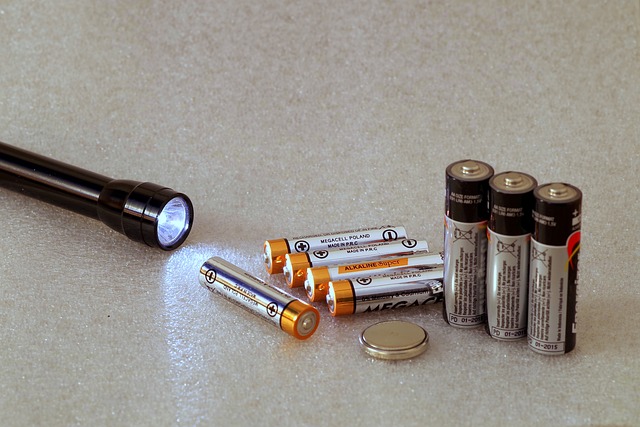Lithium battery for motorhome-pros and cons
Mar 05, 2020 Pageview:1483
The term motorhome accurately defines itself, which is a home on wheels that runs on a motor, hence “motorhome.” It is a type of self-driven recreational vehicle, commonly known as RV, and offers living accommodation that comes with a vehicle engine. These motorhomes are associated with mobile homes such as caravans. In other terms, it involves taking the comfort of your home with you wherever you may be on the road.
What battery is suitable for a motorhome?
In the current market, there is a wide variety of motorhome or RV battery options. You are also likely to get many different opinions by the self-proclaimed RV experts on which battery to settle for your RV. The following are some of the most preferred choices for a motorhome battery.
1.Deep-cycle batteries
These are a common type of lead-acid batteries and are similar to the ones found in golf carts and motorboats. It has many similar features to that of a car battery and uses the same chemical properties to generate and store its power. However, a deep-cycle battery tends to produce a moderate amount of current over extended periods and distances. On the other and, a car battery provides high amounts of current over short periods and mileage because they charge when in use.
The various types of deep-cycle batteries include Absorbed Glass Mat batteries (AGM), Flooded Wet-cell batteries, and the famous Gel-type batteries. Each of these deep-cycle battery types has different abilities and requires different maintenance levels.
2.Lithium batteries
Lithium batteries serve as the most preferred alternative to lead-acid cells, and this also includes the deep-cycle batteries that are found in modern RVs. Many motorhome owners who transform their RVs into solar powered-machines tend to upgrade to lithium batteries as the primary source of power. As much as these lithium batteries may be costly, they come in a variety of versions and offer a wide range of benefits as compared to other battery technologies.
The lithium-ion Phosphate battery, LiFePO4, has proven to be the better option over any lead-acid technology when it comes to powering RVs. It is a specific type of lithium battery that makes it an ideal choice when looking for the best power solution for your motorhome.
Lithium batteries could be the best battery technology that would keep your RV in good functioning condition and give it the energy-boost it so demands. Many RV companies have opted to equip their vehicles with lithium batteries to assure their clients of quality and power.
What are the pros and cons of lithium batteries for a motorhome?
Lithium batteries provide several pros and cons when used for motorhome, and the following are a few of them:
Pros
1.Safety
An RV isn’t just a means of transport that gets you from one location to another. That’s simply one of its primary functions. It is also your home, and thus, safety matters a lot. Lithium batteries, such as the lithium-ion phosphate cells, LiFePO4, are designed with in-built safety measures that prevent it from overheating. When the batteries overheat, they tend to automatically shut down to avoid any cases of thermal runaways and, thereafter, fires.
2.They can go the distance
While lead-acid batteries only enable you to use about 50% of their rated capacities, lithium cells are capable of giving you up to 99%. They are, therefore, suitable for extending camping trips wherever the road would take you and gives you that extra mile and time to spend in your mobile home.
3.They are light
When compared to lead-acid batteries, lithium batteries weight up to half the size and, at times, a third of the traditional lead-acid ones. Your RV is already big and bulky enough as it is, and using lithium batteries reduces the weight while increasing the capacity for speed.
4.Have longer lifespans
The lifespan of any battery is an essential factor always to consider. While lead-acid cells would require you to search for a replacement after every 2 – 3 years, lithium batteries offer about ten times longer lifespan.
5.Maintenance-free
With lead-acid batteries, you would have to monitor the water levels often to prevent fire hazards and avail them for regular maintenance. However, lithium batteries require no maintenance at all because they come with built-in safety measures. This, therefore, saves you a lot of time and energy that you would use on the maintenance for about a decade long lifespan.
6.Environmentally friendly
Lithium batteries reduce the emission of CO2 gas into the atmosphere as compared to lead-acid batteries. It powers your mobile home using clean and green energy. Their disposal is also eco-friendly as well and especially the secondary rechargeable batteries. Lithium battery types are also recyclable, and most of them are manufactured from commonly recycled material.
Cons
1.They are costly as compared to lead-acid batteries
2.They tend to be sensitive to extreme temperatures
3.They are susceptible to the aging effect common in lithium batteries
4.They undergo deep discharge rates
5.They face a few safety concerns
How do you safely use a lithium battery for a motorhome?
If you plan on using a lithium battery for your motorhome, you will need to learn how to install the battery into the vehicle safely. For proper installation, you will have to start by shutting down the RV, and this also includes tuning off all the objects and electronics that draw power from the cell, and even the lights. Locate the current battery in the bonnet of the vehicle and disconnect all the terminal cables. It would be helpful if you wiped the cables with a dry cloth, together with the lithium battery terminals, and then insert the battery and reattach the cables. You’re thus, good to go.
Takeaway
Lead-acid batteries may still be the standard and rampant battery technology used in RVs, but many manufacturers are migrating to lithium batteries. This is because lithium cells have proven to be a superior alternative to those traditional batteries, and their benefits are many.
- Prev Article: How do you charge a lithium motorcycle battery?
- Next Article: Cheapest Lithium Marine Batteries Safety and Buying
Leave Message
Hottest Categories
-
Hottest Industry News
-
Latest Industry News












